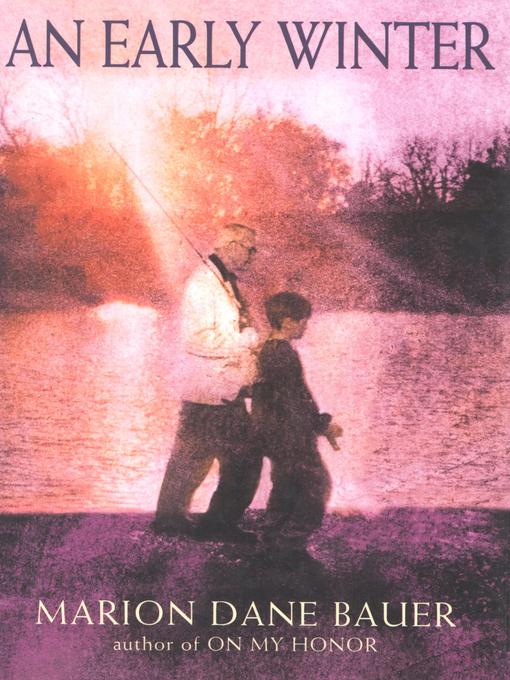
An Early Winter
فرمت کتاب
ebook
تاریخ انتشار
1999
Lexile Score
730
Reading Level
3
ATOS
4.5
Interest Level
4-8(MG)
نویسنده
Marion Dane Bauerناشر
HMH Booksشابک
9780547562926
کتاب های مرتبط
- اطلاعات
- نقد و بررسی
- دیدگاه کاربران
نقد و بررسی

August 2, 1999
The title and recurring theme of Bauer's (Sleep, Little One, Sleep, reviewed above) novel refers to the grim effects of Alzheimer's disease. Ten-year-old Tim idolizes his grandfather, a former veterinarian and outdoorsman who raised him after Tim's father mysteriously disappeared. As his mother, stepfather and grandmother make plans to care for his failing grandfather, Tim angrily denies signs of the man's memory loss and disorientation, and plots to take his grandfather on a nostalgic fishing trip to prove that the man can still function normally. Bauer builds clues regarding the seriousness of the disease to a dramatic crescendo, when Tim must deliver them both to safety. In the process, Tim discovers some unpleasant truths surrounding his father's departure and--a bit too neatly--confronts his fears and grief, and comes to accept his grandfather as a person instead of a hero. While there are moments of painful honesty (for example, in the closing bedside scene when Tim asks his grandfather if he knows him, the man replies, "I'm afraid I've forgotten... I know you are someone I love"), in other instances Tim's thoughts do not seem plausible. Still, the book offers a realistic depiction of the effects of this incapacitating disease and will likely be helpful to children who are struggling with aging relatives. Ages 9-up.

October 1, 1999
Gr 4-7-Swiftly moving but somewhat cliched, this novel's chief strengths are its fairly fresh subject matter (a beloved grandfather's "descent" into Alzheimer's), its clear delineations of the trials of the disease, and its sharp depiction of 11-year-old Tim. The relationship between the boy and his grandfather is also clearly drawn-their shared camaraderie and love of fishing. On the other hand, Bauer has structured the plot so seamlessly, with Tim's father's disappearance years earlier as the only element that is not neatly resolved, that the book seems almost designed to be a television movie of the week. We have 1) introduction of problem; 2) Tim's denial of problem; 3) Tim's "crazy" attempt to prove problem does not exist; 4) near-disaster following that attempt; and 5) resolution that tidily acknowledges that problem must be dealt with, but will be dealt with in a positive and loving manner. Young readers, however, are unlikely to be bothered by these literary issues. Though the boy's behavior may occasionally seem too childish for a sixth grader, readers will most likely sympathize with his feelings of betrayal as the other adults discuss plans for dealing with his grandfather, and will cheer his attempts to take matters into his own hands and "save" the old man.-Coop Renner, Moreno Elementary School, El Paso, TX
Copyright 1999 School Library Journal, LLC Used with permission.

December 1, 1999
Gr. 4^-7. Tim feels certain that his grandfather's decline in mental health can be blamed on the fact that he and his mother moved away from his grandparents. On a return visit, he's determined to prove that Granddad can be fine with his help. Although Tim finds his grandfather is the same in many ways, he also sees worrisome changes when he convinces Granddad to run away with him on a camping trip. Clearly Alzheimer's is the primary focus of the novel, but Bauer also develops a delicately layered story about blame and truth. She leads both the reader and Tim to leap to conclusions about the characters that later prove to be false (or at least not the whole story), as Tim learns more about why he has never met his biological father, Granddad's son. Both the jacket painting and the tone are somber, but the story's suspense and its warmly realistic conversations will keep kids reading if they can be enticed to begin. With its humane, complicated characters, this makes a good choice for discussion. ((Reviewed December 1, 1999))(Reprinted with permission of Booklist, copyright 1999, American Library Association.)

























دیدگاه کاربران